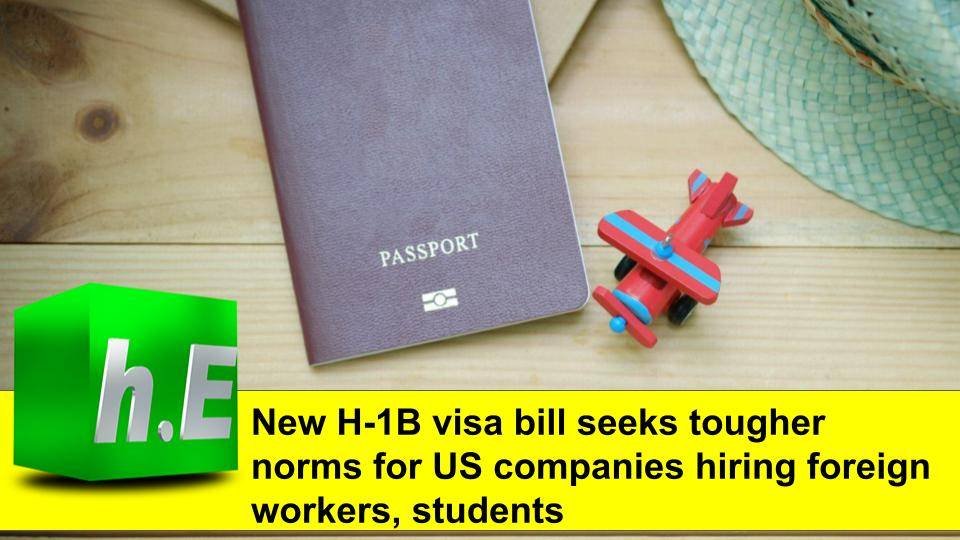A new immigration bill in the United States has proposed stricter entry rules under the country’s H-1B visa program.
The new bill under the name American Tech Workforce Act of 2021 introduced in the US House of Representatives has proposed to eliminate Optional Practical Training (OPT) which allows foreign with student visas to work in the US for up to 3 years if they have STEM qualifications. The H-1B program largely benefits big tech companies by allowing tax relaxations and hiring foreign workers at cheaper wages. Supporters of H-1B claim that the visa regime rejects the claim and views it as important in addressing the gap in the US labor market.
Besides, the bill — supported by American Principles Project (APP), Federation for American Immigration Reform (FAIR), and NumbersUSA — also proposes to bring down the period of H-1B visas sponsored by third-party companies from three years to just one year.
The other provisions of the bill include introducing a wage floor compensation for H-1B visa recipients. This wage floor compensation will be equal to the higher end of the annual wage paid to an American worker for the position or the US $1,10,000, whichever is higher.
The bill has been introduced as part of the Republican Study Committee to bring “accountability of big tech companies”. According to political observers, the bill carries forward the legacy of former US President Donald Trump, who advocated laws that make it tougher for American companies to hire foreign workers.

In an official statement, Jim Banks said, “Big Tech is setting aside some of the most lucrative and valuable career opportunities in America and giving them exclusively to foreign guest workers. They’re cutting out Americans to save a few bucks. It’s domestic outsourcing.”
The L-1 visa is valid for a relatively short amount of time. The L-2 visa is used to enter the US by the dependent spouse and unmarried children under 21 years of age of qualified L-1 visa holders. It is a non-immigrant visa and is only valid for the duration of the spouse’s L-1 visa.
However, the L-1 spouses will get the extension without applying for it, the H-4 visa will still have to apply for the extension once their employment permit expires.
An H-4 visa is issued by the USCIS to immediate family members (spouse and children under 21 years of age) of the H-1B visa holders. The H-4 visa is issued to those who have already the process of seeking employment-based lawful permanent resident status in the US. Over 90% of H-4 applicants are Indian women.
This year, a group of mainly Indian nationals and lawyers filed a class-action suit challenging the immigration policy that prevented H-4 and L-2, visa holders, from working in the US till they don’t have a work permit.
However, as directed by the court, L-2 visa holders will get 180 days auto extension of their work authorization) or an I-94 expiration date, whichever is shorter). And the H-4 visa holders will get automatic extensions of their H-4 employment authorization document (EAD) until the expiration of their I-94s or 180 days from the expiration of the prior EAD, whichever is sooner.

The immigration support group has said the latest development has not smoothened the work authorization permit process for the immigrants. According to them, applicants will have to spend time on the complicated process to get the H4 visas stamped for the 180-day auto extension.
We have always emphasized the importance of having a good website for your company because it can act as your best tool for marketing and sales. A poorly designed website can repulse people from your business and can cause you to lose customers before you even have them. Get in touch with HyperEffects to work on creating, enhancing, and making the website of your company more user-friendly.

